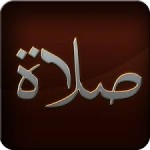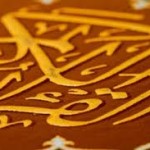Is it permissible to pray taraweeh behind an Imam with a trimmed or shaven beard?
Question:
I‘m looking for ruling regarding person leading taraweeh salah without a beard (completely shaven).
Answer:
In the Name of Allah, the Most Gracious, the Most Merciful.
A person who shaves his beard or cuts it less than a fist is committing open transgression, and should thus, seek Allah’s forgiveness and repent to Him for their wrongdoing. [1]
This position is well-substantiated and established; it has been proven and discussed in great detail by many of our scholars. One may refer to the references provided in the footnotes [2], alongside the following articles:
- Aḥkām al-Khiṭāb Fī Ba’ḍi Aḥkām al-Luḥā wal-Khiḍāb (Jawāhir al-Fiqh, 7/157-177, Maktabah Dār al-‘Ulūm Karāchī);
- Dārhī Kā Mas`alah (Āp Ke Masā`il Aur Un Kā Ḥal, 8/289-302, Maktabah Ludhyānwī);
- Dārhī Kī Miqdār Kā Mas`alah (Fatāwā Bayyināt, 4/374-401, Maktabah Bayyināt);
- Dārhī Kī Shar’ī Ḥaythiyyat (Fatāwā ‘Uthmānī, 4/421-423, Maktabah Ma’ārif al-Qur`ān);
- Madhāhib Arba’ah Mei Dārhī Kī Shar’ī Ḥaythiyyat Aur Us Ke Kātne Wāle Par Fisq Kā Ḥukm (Fatāwā Dār al-‘Ulūm Zakariyyā, 2/268-271, Zamzam).
Accordingly, it will not be permissible at all to make such a person an imām to lead tarāwīḥ ṣalāh or any other ṣalāh in the Masjid. [3]
Consider the following fatāwā from our Akābirīn (may Allah be pleased with them):
Muftī Maḥmūd Ḥasan Ṣāḥib Gangohī (may Allah be pleased with him) has mentioned:
“To cut (the beard) before it reaches a fist or to keep a small (trimmed) beard is not allowed according to anyone. Whosoever does such, it is makrūh taḥrīmī (severely disliked) to make them an imām.” [4]
Muftī Rashīd Aḥmad Ṣāḥib Ludhyānwī (may Allah be pleased with him) has mentioned:
“In conclusion, a person who cuts or shaves his beard is a fāsiq (open transgressor), and the imāmat (leading ṣalāh) of a fāsiq is makrūh taḥrīmī (severely disliked). Thus, it is impermissible to make such a person an imām. If such a person is forced into becoming an imām, or those responsible for the masjid have made such a person an imām, and one is not able to remove them (from the position of an imām), then one should find (and pray behind) a righteous imām in another masjid. If this is not possible then one should not leave praying in congregation; rather they should pray behind the fāsiq. The sin (of appointing such a person as an imām) will be on those responsible for the masjid.” [5]
Muftī Radhā` al-Ḥaq Ṣāḥib (may Allah preserve him) has mentioned:
“In the light of Sharī’ah, one who shaves his beard is a fāsiq (open transgressor), and the imāmat (leading ṣalāh) of a fāsiq is makrūh taḥrīmī (severely disliked). One should offer their tarāwīḥ ṣalāh behind a righteous imām. Yes, if this is not possible, and one is not able to change (the imām), then one should not leave the (the virtue of) congregation; rather, they should pray behind (even) such an imām.” [6] [7]
And Allah Ta’āla Knows Best
Ishaq Chowdhury
Concurred by: Hanif Yusuf | Mu‘adh Chati | Asmar Akram
Approved by: Mufti Siraj Sitponi Falahi
References
[1]
لا يحل للرجل أن يقطع اللحية.
[Al-Fatāwā al-Bazzāziyyah, 3/216, Dār al-Fikr); (Al-Durr al-Mukhtār ma‘a Radd al-Muḥtār, 9/583, DKI]
في كراهية التجنيس: قال عليه السلام: احفوا الشوارب واعفوا اللحى، أي قصوا الشوارب واتركوا اللحى كما هي ولا تحلقوها ولا تقطعوها ولا تنقصوها من قدر المسنون وهو القبضة.
[Al-Fatāwā al-Tātarkhāniyyah, 18/211, Maktabah Fārūqiyyah]
وأما الأخذ منها وهي دون ذلك [أي القبضة] كما يفعله بعض المغاربة ومخنثة الرجال فلم يبحه أحد.
[Fatḥ al-Qadīr, 2/352, Maktabah Rashīdiyyah; Ḥāshiyah al-Shalbī ‘ala Tabyīn al-Ḥaqā`iq, 2/187, DKI; Al-Durr al-Mukhtār ma‘a Radd al-Muḥtār, 3/398, DKI; Ḥāshiyat al-Ṭaḥṭāwī ‘alā Marāqī al-Falāḥ, 681, Qadīmī Kutub Khānah]
[2]
[Imdād al-Fatāwā, 4/223, Maktabah Dār al-‘Ulūm Karāchī; Kifāyat al-Muftī, 9/170-178, Dār al-Ishā’at; Āp Ke Masā`il Aur Un Kā Ḥal, 8/289-320, Maktabah Ludhyānwī; Fatāwā Ḥaqqāniyyah, 2/467; Fatāwā Qāsimiyyah, 23/625-, Maktabah Ashrafiyyah; Kitāb al-Nawāzil, 15/551-, Maktabah Jāwaid Deoband; Fatāwā ‘Uthmāniyyah, 10/135, Al-‘Aṣr Academy; Fatāwā Dīniyyah, 5/99-]
For Muftī Radhā` al-Ḥaq Ṣāḥib’s full discussion (may Allah preserve him), refer to Fatāwā Dār al-‘Ulūm Zakariyyā, 2/268-271, Zamzam. Below is his conclusion:
مذکورہ بالا حدیث اور فقہی عبارات کی روشنی میں یہ بات واضح ہوتی ہے کہ ائمہ اربعہ کے نزدیک داڑھی کا منڈانا حرام ہے، اور اس کا کاٹنا جو کہ کفار کے مشابہ ہو بعض کے نزدیک حرام اور بعض کے نزدیک مکروہ ہے، پھر مکروہ پر اصرار کرنے والا فاسق ہوگا، کیونکہ صغیرہ پر اصرار کرنے سے وہ کبیرہ کا حکم لے لیتا ہے، جیسے کہ علامہ شامی کی عبارت سے پتہ چلتا ہے: لأن الصغيرة تأخذ حكم الكبيرة بالإصرار.
[3]
"ويكره تقديم العبد ... والفاسق" لأنه لا يهتم لأمر دينه.
[Al-Hidāyah, 1/122, Al-Miṣbāḥ; Al-Baḥr Al-Rā`iq, 1/610, DKI]
كره إمامة الفاسق ... وروى محمد عن أبي حنيفة رحمه الله تعالى وأبي يوسف أن الصلاة خلف أهل الأهواء لا تجوز، والصحيح أنها تصح مع الكراهة خلف من لا تكفره بدعته، لقوله صلى الله عليه وسلم: "صلوا خلف كل بر وفاجر وصلوا على كل بر وفاجر وجاهدوا مع كل بر وفاجر" رواه الدارقطني كما في البرهان، وقال في مجمع الروايات: وإذا صلى خلف فاسق أو مبتدع يكون محرزا ثواب الجماعة لكن لا ينال ثواب من يصلي خلف إمام تقي.
[Marāqī al-Falāḥ with Ḥāshiyat al-Ṭaḥṭāwī, 303, Qadīmī Kutub Khānah]
"ويكره إمامة عبد ... وفاسق ..." قوله: (وفاسق) من الفسق: وهو الخروج عن الاستقامة، ولعل المراد به من يرتكب الكبائر كشارب الخمر والزاني وآكل الربا ونحو ذلك، كذا في البرجندي إسماعيل.
[Radd al-Muḥtār, 2/298, DKI]
سوال: ڈاڑھی کٹانے والے کی امامت کا کیا حکم ہے؟
الجواب: ایک مشت سے پہلے ڈاڑھی کٹانے والا یا چھوٹی رکھنے والا فاسق وفاجر ہے اس کی امامت مکروہ تحریمی ہے لہذا دیندار متقی شخص کو امام بنانا چاہئے۔ ... خلاصہ: باتفاق ائمہ اربعہ ڈاڑھی منڈانے والے یا ایک مشت سے اوپر کترانے والے کی امامت مکروہ تحریمی ہے۔
[Fatāwā Dār al-‘Ulūm Zakariyyā, 2/267, Zamzam]
داڑھی کٹانے والا شخص فاسق ہے، اس کو امام بنانا ناجائز اور مکروھ تحریمی ہے، اس لئے ایسے شخص کو تراویح میں امام نہیں بنانا چاہئے، اس سے قرآن سننے کا ثواب متبع سنت حافظ کے مقابلہ میں یقینا کم ہوگا۔
[Kitāb al-Nawāzil, 5/55, Maktabah Jāwaid Deoband]
[4]
ایک مشت تک پہنچنے سے پہلے کٹانا یا چھوٹی چھوٹی رکھنا کسی کے نزدیک بھی مباح نہیں: "وأما الأخذ منها وهي دون ذلك كما يفعله بعض المغاربة ومخنثة الرجال، فلم يبحه أحد". شامی: 2/113. جو شخص ایسا کرتا ہے اس کو امام بنانا مکروہ تحریمی ہے، لأنه فاسق وكراهة تقديمه كراهة تحريم كما في الغنية ورد المحتار وغيرهما۔ فقط واللہ تعالی اعلم۔
[Fatāwā Maḥmūdiyyah, 6/123-124, Jāmi’ah Fārūqiyyah Karāchī]
[5]
غرضیکہ ڈاڑھی کٹانے یا منڈانے والا فاسق ہے، اور فاسق کی امامت مکروہ تحریمی ہے، اس لئے ایسے شخص کو امام بنانا جائز نہیں، اگر کوئی ایسا شخص جبرًا امام بن گیا یا مسجد کی منتظمہ نے بنادیا اور ہٹانے پر قدرت نہ ہو تو کسی دوسری مسجد میں صالح امام تلاش کرے، اگر میسر نہ ہو تو جماعت نہ چھوڑے بلکہ فاسق کے پیچھے ہی نماز پڑھ لے، اس کا وبال وعذاب مسجد کے منتظمین پر ہوگا، صلى خلف فاسق او مبتدع نال فضل الجماعة (در مختار) وفی الشامية افاد ان الصلوة خلفهما اولى من الانفراد لكن لا ینال کما ينال خلف تقي ورع (شامية ج1) وقال النبي صلى الله عليه وسلم صلوا خلف كل بر وفاجر، فقط والله تعالى أعلم۔
[Aḥsan al-Fatāwā, 3/260, H.M. Sa’īd]
[6]
سوال: ڈاڑھی منڈوانے والے کی امامت تراويح کا کیا حکم ہے؟
الجواب: ڈاڑھی منڈوانے والا شريعت کی نگاہ فاسق ہے اور فاسق کی امامت مكروه تحريمى ہے، نیک صالح امام کے پیچھے نماز تراویح پڑھنا چاہئے ہاں اگر میسر نہ ہو اور ہٹانے پر بھی قدرت نہیں ہے تو جماعت ترک نہ کرے بلکہ امام کے پیچھے پڑھ لے۔
[Fatāwā Dār al-‘Ulūm Zakariyyā, 2/498, Zamzam]
[7]
ولو صلى خلف مبتدع أو فاسق فهو محرز ثواب الجماعة لكن لا ينال مثل ما ينال خلف تقي. كذا في الخلاصة.
[Al-Fatāwā al-Hindiyyah, 1/141, Dārul-Fikr; Fatāwā QaḍīKhān, 1/59, Dār al-Fikr]
"وفي النهر عن المحيط: صلى خلف فاسق أو مبتدع نال فضل الجماعة" قوله: (نال فضل الجماعة) أفاد أن الصلاة خلفهما أولى من الانفراد، لكن لا ينال كما ينال خلف تقي ورع.
[Radd al-Muḥtār, 2/301, DKI]
See also: [Fatāwā Raḥīmiyyah, 4/191-193; 4/199, Dār al-Ishā’at]
DISCLAIMER:
The Ask Our Imam site hopes to respond to queries relating to Islamic law. It is not an Islamic Law Shari`ah Court. The questions and answers found on this website are for educational purposes. However, many of the rulings rendered here are distinct to the specific scenario and thus should be read in conjunction with the question and not taken as a basis to establish a verdict in another situation or environment. This site bears no responsibility in these responses being used out of their intended context, nor to any party who may or may not follow the responses given and is being hereby exempted from loss or damage howsoever caused. None of the responses rendered may be used as evidence in any Court of Law without prior written consent of Our Imam. Any reference to another website or link provided in our responses or article should not be taken as an endorsement of all the content on that website; in fact, it is restricted to the particular material being cited.
Posted in Salaah (Prayer) on 8th Apr 2021 by Our Imam | 2028 Views











